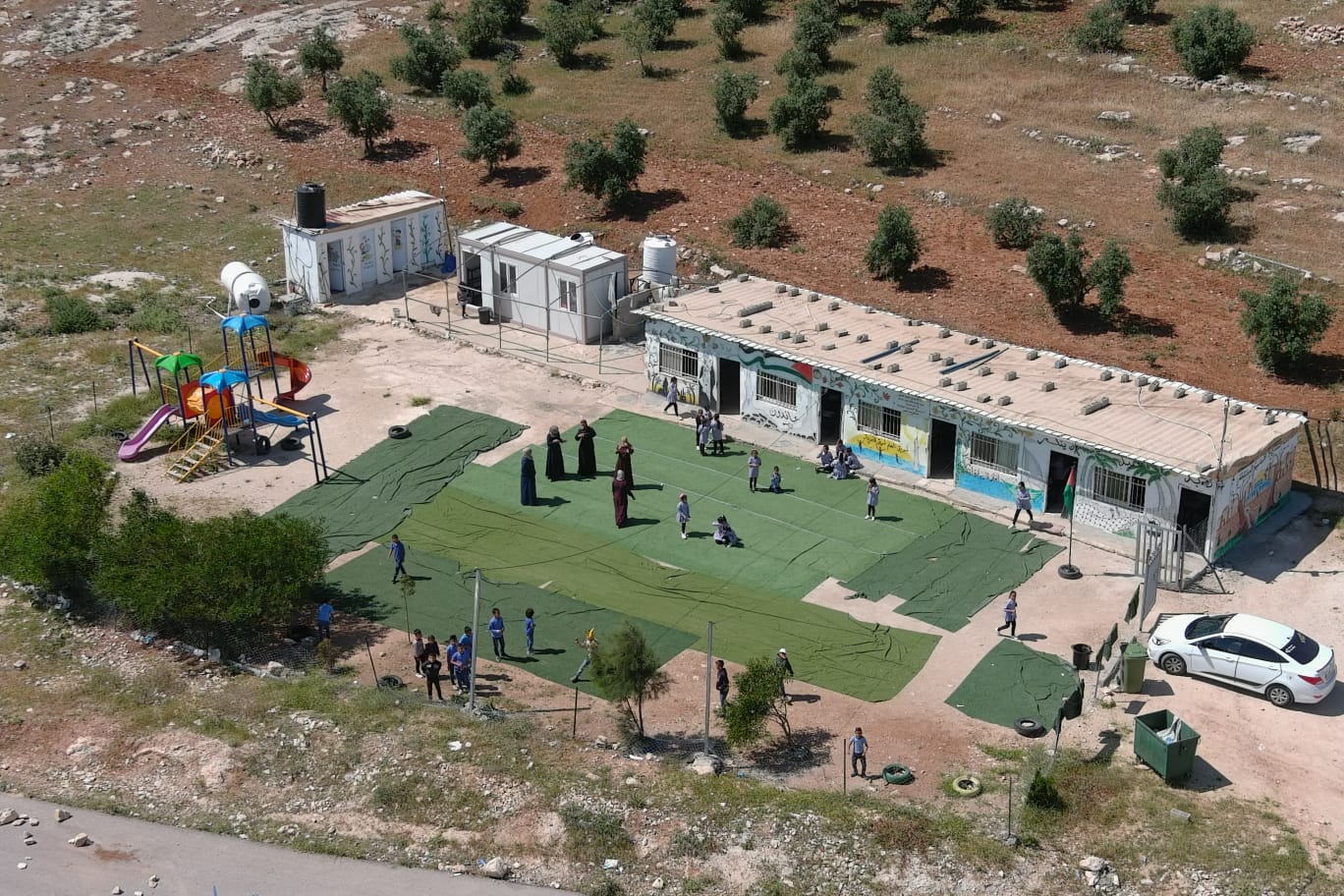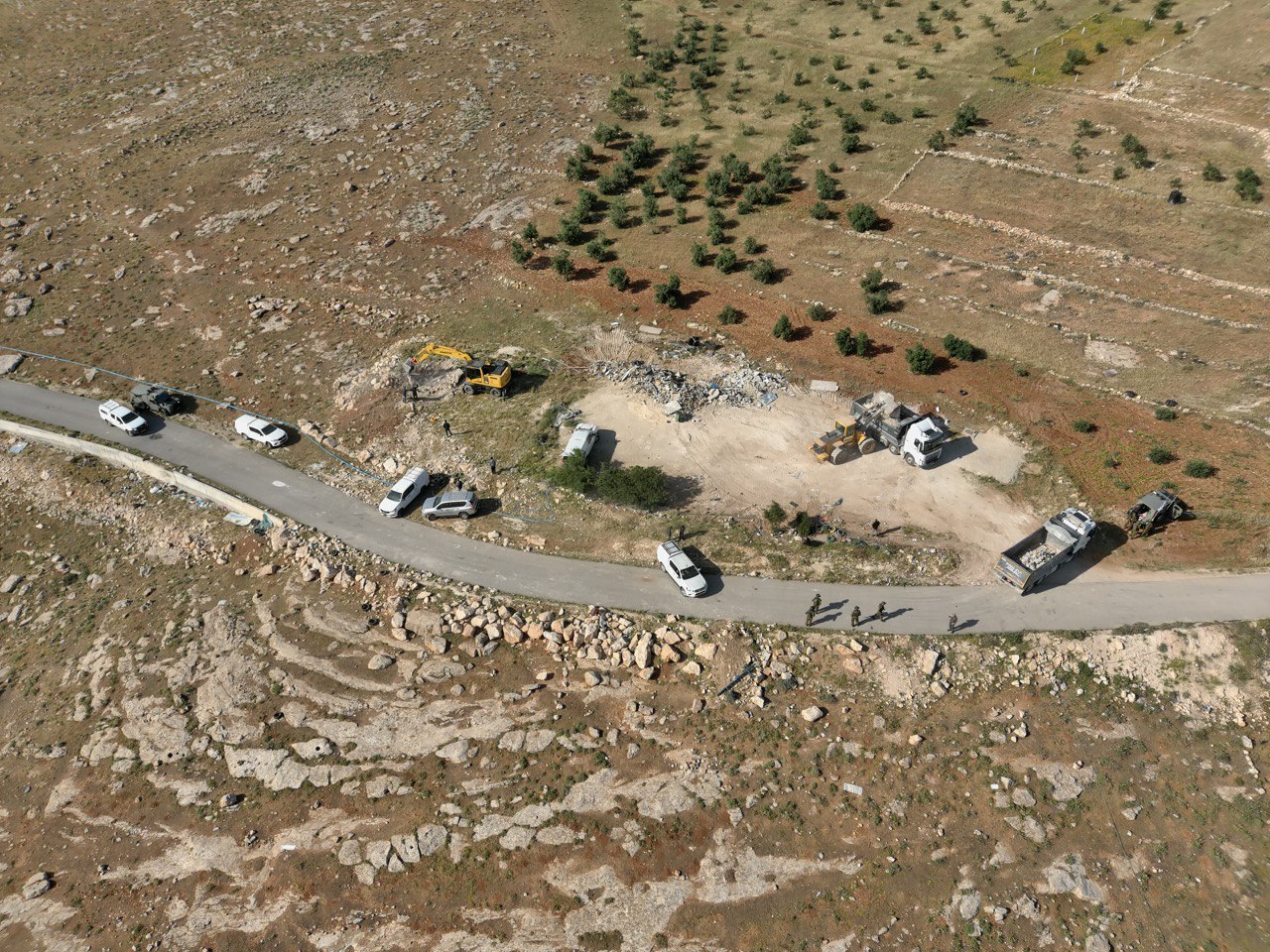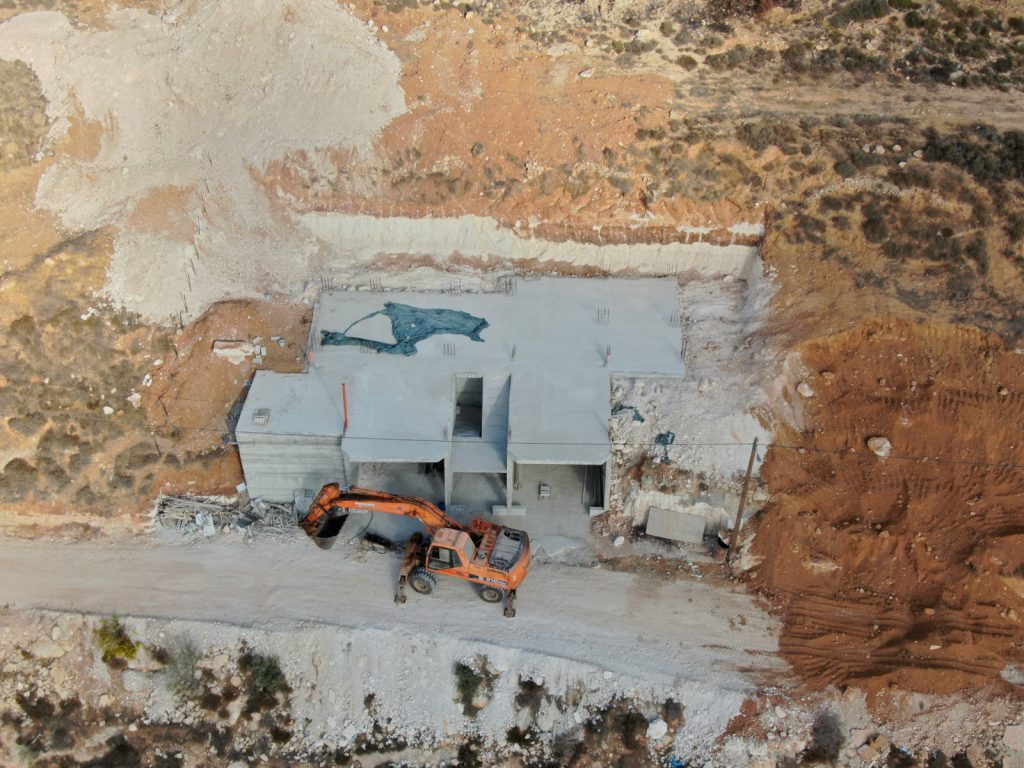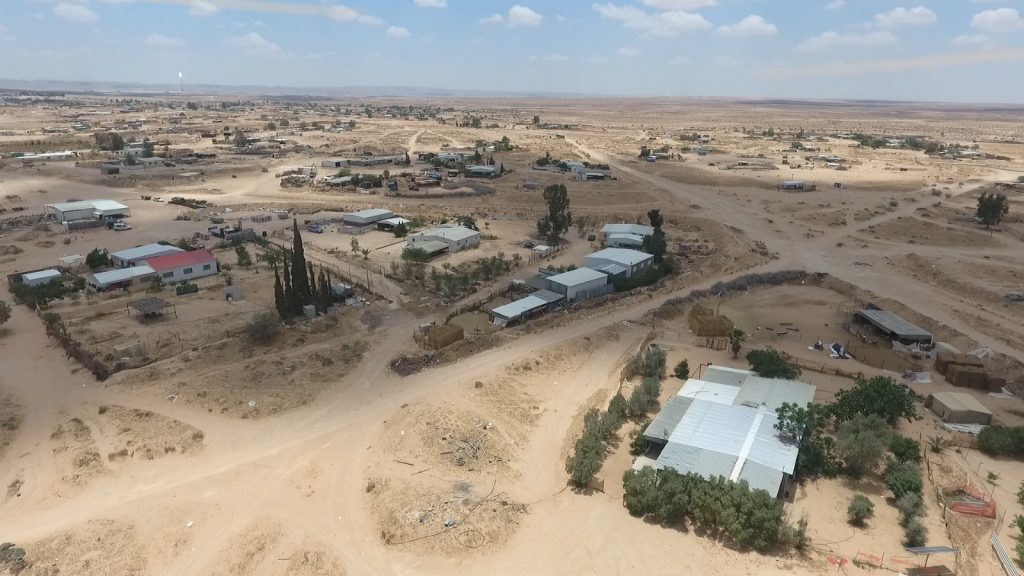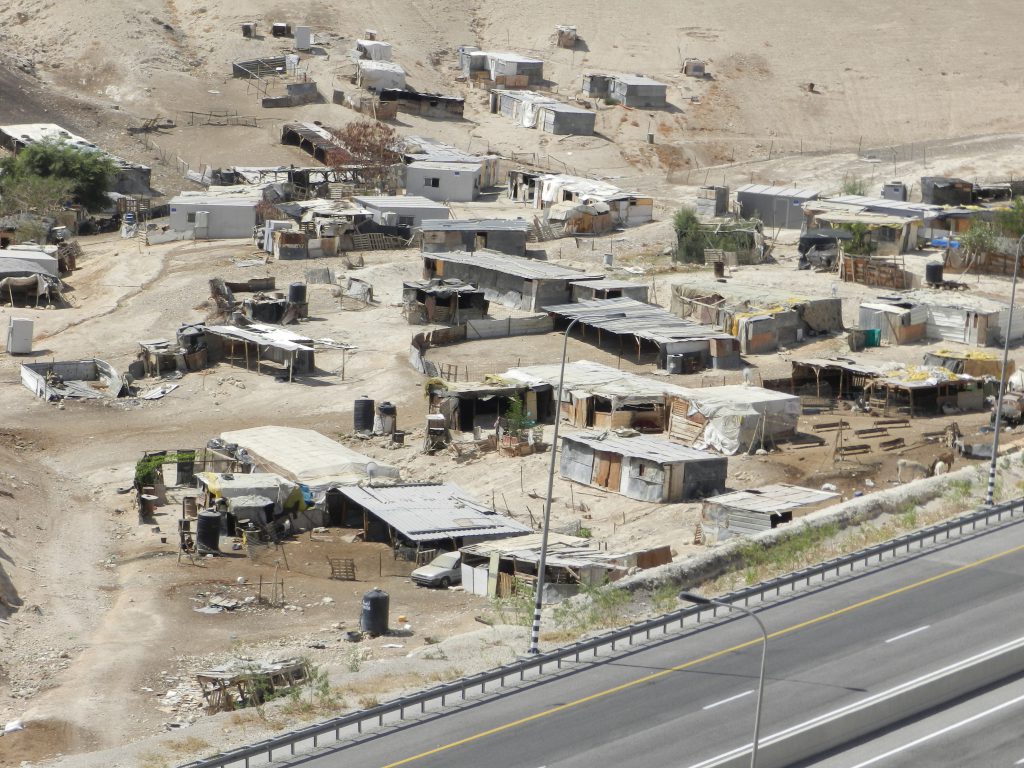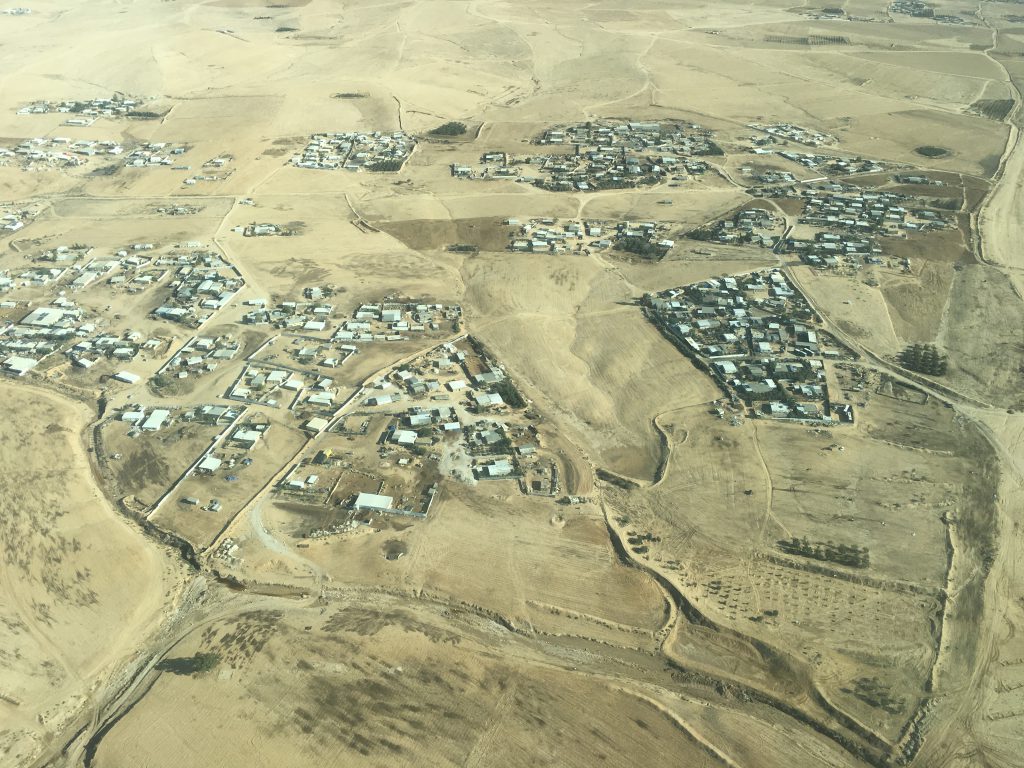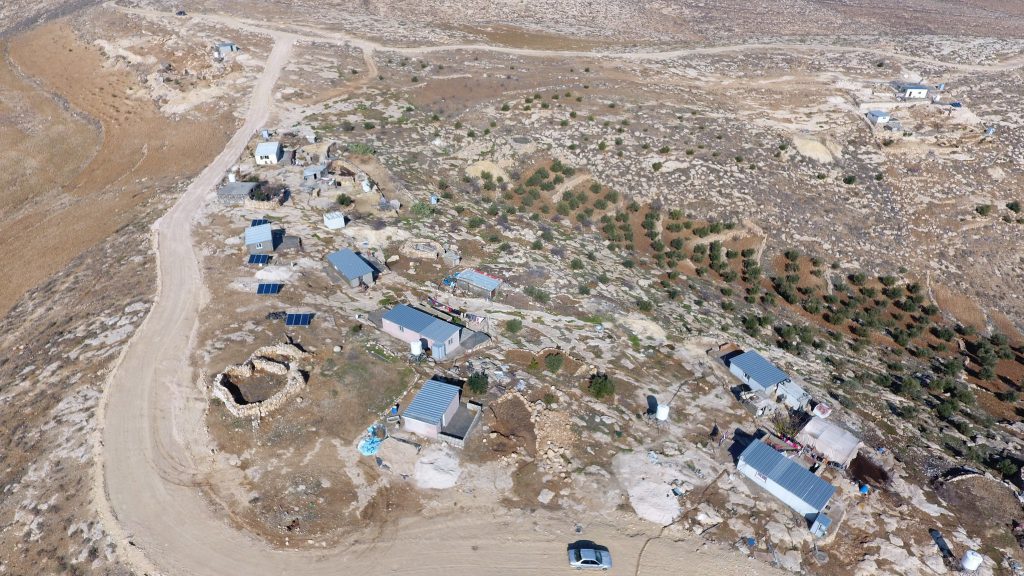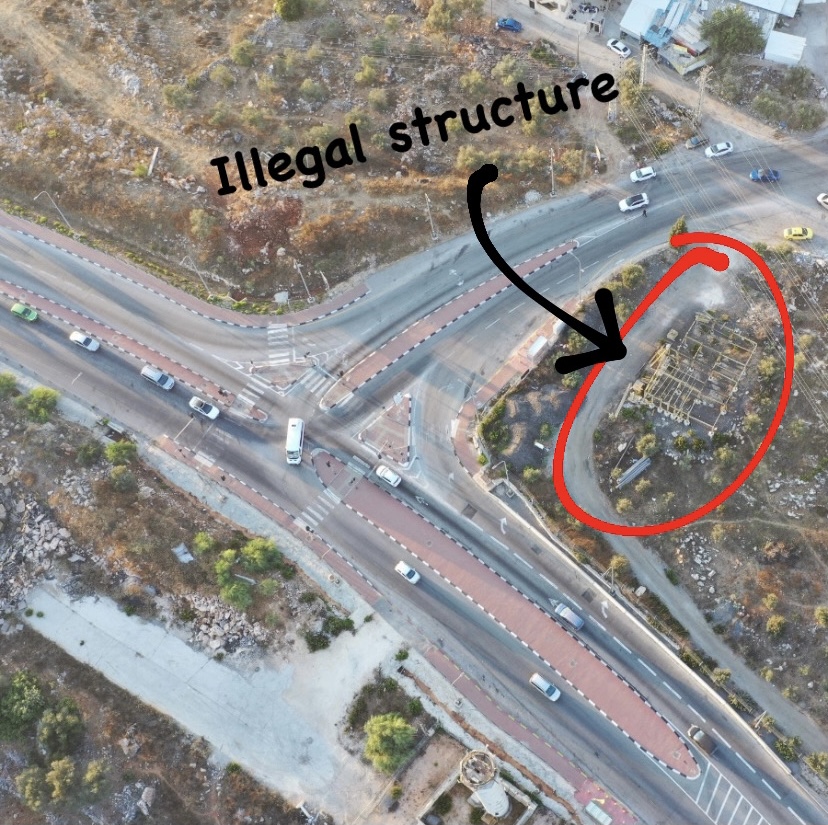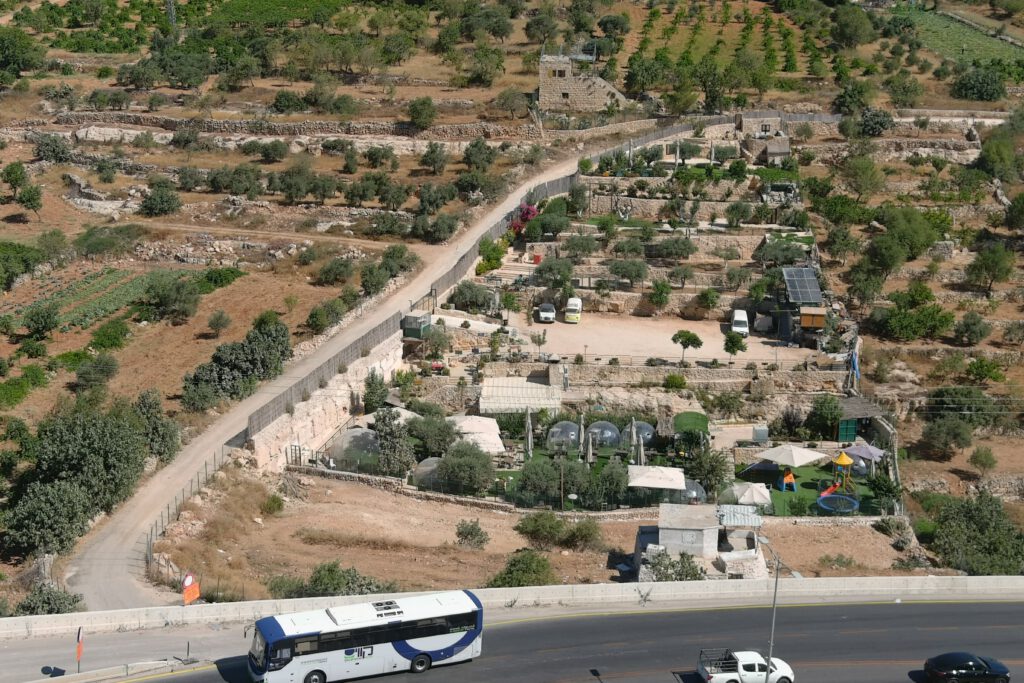
After months of unanswered complaints and correspondence, Regavim has taken its battle against an illegal events venue up a notch: A new petition filed jointly with the Gush Etzion Regional Council demands immediate enforcement. “The Palestinians are partying at our expense.“
A new petition to the Jerusalem District Court demands the immediate demolition of an illegal event complex, built without the necessary permits on the outskirts of the village of Al-Khader – in Area C, which is under full Israeli jurisdiction. The complex has a commanding location adjacent to Route 60, the major thoroughfare connecting the communities of Gush Etzion and Mount Hebron to Jerusalem that is traveled by thousands of motorists every day.
The site houses several structures in a multi-level entertainment and events compound complete with a spacious parking lot. When work at the site first began, Regavim and the Gush Etzion Regional Council appealed to the enforcement authorities to prevent the land-grab and illegal construction. It took months and months for the Civil Administration to respond to the repeated appeals, and the response was the same as in thousands of cases Regavim has pursued over the years: The Civil Administration claimed that stop-work orders and demolition orders had indeed been issued – and enforcement would be carried out “according to established priorities.”
Nonetheless, over the course of the past year, development work was completed – in complete disregard for any orders that were or were not issued, and the perpetrators even submitted a request for a retroactive permit, which was rejected. Throughout this entire farce, the compound has continued to host events every day. There has been absolutely no enforcement of any kind against this illegal business enterprise, the structures built at the site, or the perpetrators – who continue to laugh all the way to the bank.
The Regavim-Gush Etzion petition mentions both the close proximity to the road, and the fact that the structures were built within an area under military orders that prohibit construction of any kind due to the sensitivity of the location: “The very real security risk posed by the compound to all users of the road requires increased enforcement, not tacit acceptance of illegal activity by enforcement authorities that have made a habit of turning a blind eye to Arab construction offenses.”
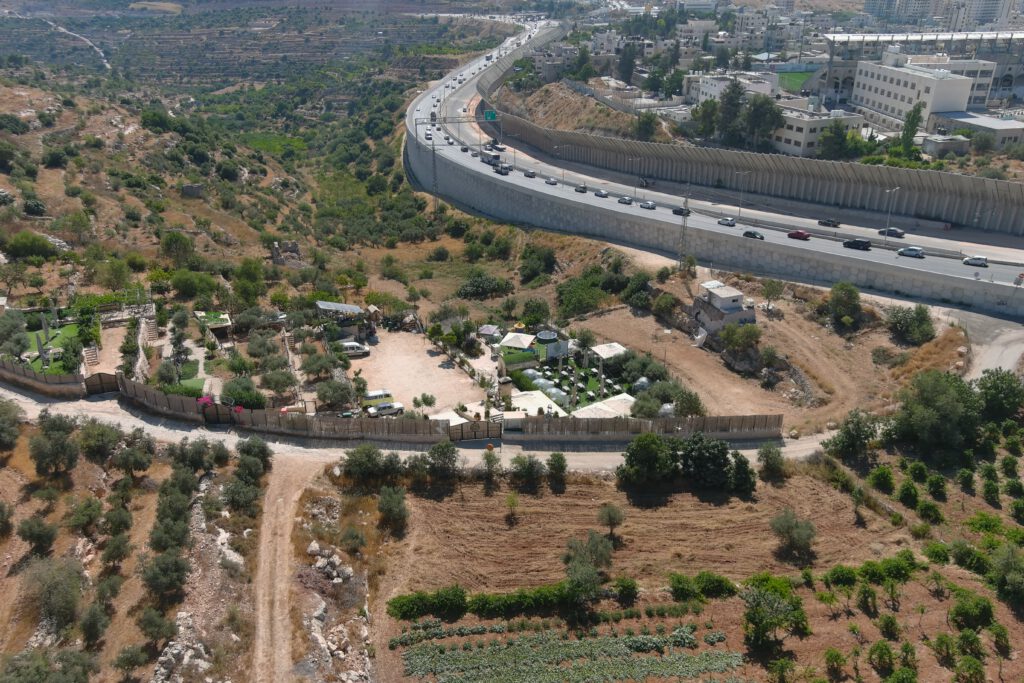
According to Regavim’s data, there are more than 370 illegal structures and dozens of agricultural encroachments in this area alone, resulting in a takeover of thousands of dunams of land in the open areas that is suffocating the southern approaches to Jerusalem and forming a stranglehold around the capital.
“The Palestinians are celebrating here – and what they’re celebrating is Israel’s lack of governance,” says Moshe Shmueli, Regavim’s Field Coordinator for Judea and Samaria. “This is a complex that hosts weddings and parties every evening, on one of the busiest roads in the vicinity of Jerusalem, less than half a kilometer from the tunnel road. We see again and again how the Battle for Area C has long been waged: annexation tactics are not limited to planting trees and other agricultural projects, or construction of shacks and shanties. The Palestinian Authority is on a massive construction spree in all of Judea and Samaria from south to north – building parks, event venues, recreation complexes, institutions and factories. We are witnessing the fulfillment of Palestinian declarations about the unilateral establishment of a state – and the State of Israel continues to ignore it.”
Shlomo Ne’eman, Head of the Gush Etzion Regional Council and Chairman of the Council of Jewish Communities in Judea and Samaria, adds: “It’s time to put an end to the celebration! This complex was built by Arabs who are taking advantage of the lack of enforcement against the rampage of illegal construction in the area. The compound is located on land which for the most part falls under a military order prohibiting construction of any kind. To make matters worse, it is built on archeological antiquities: the complex’s pool is built on a burial cave, trampling not only the priceless history but the law that requires preservation and scientific examination and documentation of our heritage.”
Despite Civil Administration orders, these lawbreakers violated the law time and time again and continued with illegal construction. The Gush Etzion Council invests massive efforts in the fight against the hostile Arab takeover of our national land resources. This illegal complex is located in a strategic area that connects Gush Etzion to Jerusalem, and we demand immediate enforcement and oversight.”




